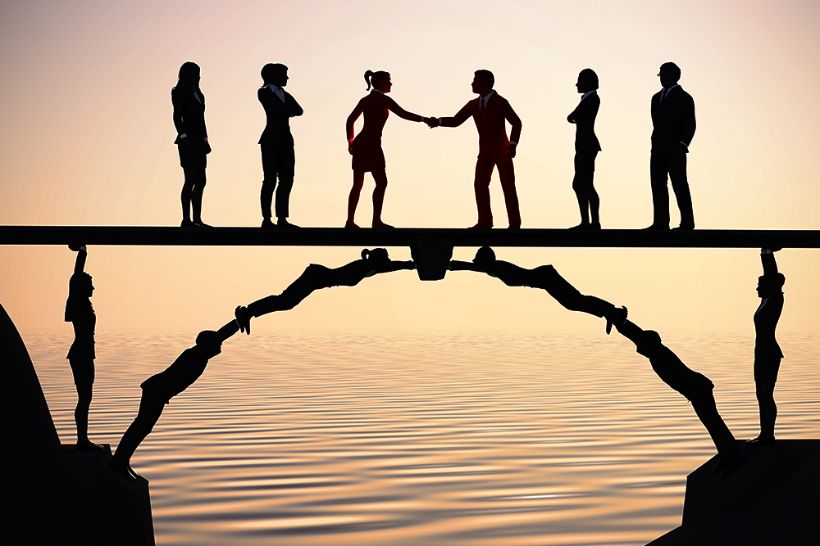
Why do some teams immediately gel and kick goals while others are rife with conflict and tension?
Naturally, personality has a lot to do with it. But is there more to it than that? And, can we influence the outcome?
Any time you gather a group of people to work together you immediately run the risk of encountering problems. This is because, as people, we all have our varying experiences, opinions, and ways of doing things.
And when you assemble a team on projects, the risks can be even greater! In addition to the diversity you’ll find in people, on projects you’re also battling time constraints, the uniqueness of each project brief, and the ever-changing variety of people making up the project team.
With the above in mind, let’s get cracking to help you develop the right team chemistry.
How to Create Project Team Chemistry
In my experience, I don’t see project teams investing much time in considering the team culture they’d like to build.
Instead, I see teams take a Russian Roulette approach, where they leave ending up with good team culture to chance. While there may be several reasons for this, the reasons are irrelevant. The fact is, if you want to influence the outcome of your team chemistry, you need to act!
Here are five steps that any project team can take to create and steer themselves to a love-set-match for team chemistry!
Your Project Strategy Needs These 3 Things
1. Set the team working relationship and expectations at the beginning
Don’t be fooled by the honeymoon period. Projects generally kick off with excitement and seemingly with the same goals. The true test however is when you encounter obstacles and risks to commitments. If the team is not aligned in the way they work or on their opinions, you want to know this at the start, way before you encounter a problem!
Teams that gel are the ones that talk about everything, especially the icky topics like “what do we do if you don’t do what you said you would?”.
Adversely, team conflict is more likely to occur when things have not been discussed and addressed, or when there is no process set to manage situations.
Don’t assume. Ask questions. Discuss. And collectively agree on what’s important for the team to succeed together.
The types of expectations you should set include things like:
2. Create role clarity and transparency
Often team members don’t gel because they see their roles as being disconnected from each other.
Close this gap by making sure everyone is clear on the role they play and how these fit into the team. It is also important for everyone to know the role their team members play and how they succeed.
A RACI (Responsible Accountable Consult Inform) Register is ideal to create a high-level guide of agreed responsibilities for different milestone tasks.
3. Form empathy and trust
Teams that have chemistry, have trust. And trust only comes when people feel confident that they are supported.
When team members see that the team is aware of their pain points and will actively do things to help them succeed, they will feel supported.
Spend some time allowing team members to share what they do beyond just their title and how the team can help them minimise challenges.
Ways to form empathy and trust include things like:
4. Strengthen Trust
Because we are different, it’s essential to set clear and firm boundaries for the team to abide by.
Boundaries should be set as a team to create a safe platform that empowers each team member to be able to confidently question the status quo and implement continuous improvement.
Particularly for situations where a person has the perfect skill set but a negative team approach, it is extremely important to set boundaries to protect the interest of the entire team. A disconnected team, no matter how great one person may be, WILL compromise the project’s success.
Ways to strengthen trust include things like:
5. Bring people to life
Create the space to allow and encourage social interactions and conversations.
When we discover common interests and experiences in each other, we are much more likely to champion each other to succeed.
Team Chemistry is worth your effort
Regardless of your title or the role you play on a project, I want to assure you that every team member can equally influence team chemistry.
The fact is, if no one is doing anything about your project team not gelling or kicking goals together, it’s probably because the right people don’t know about it or don’t know how to deal with it. So if you’ve got ideas on how to improve team chemistry, you should definitely speak up.
When you make the effort to invest in establishing good team chemistry, your team and your project will benefit.
Subscribe for insights, tips and strategies to help you deliver powerful projects.